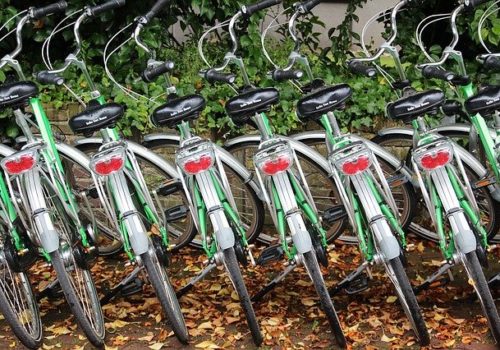- Home
- Our convictions
- Conviction #3
Conviction #3
Conviction #3
Tomorrow’s mobility will focus on individual needs
With 66% of the population living in cities by 2050, ‘mass transit’ will be a must. However, in order to convince people to abandon certain modes of individual transport that pollute and/or congest cities, tomorrow’s mobility will, paradoxically, have to adapt to the individual and no longer just the collective. Whereas in the past, transport was viewed more in terms of flow management, mobility will indeed focus on the needs of individuals for the duration of their journeys – from start to finish. Notions such as health, well-being, freedom, experience, and safety… will lie at the heart of mobility of the future.
This ‘user-centric’ approach is all the more difficult since travellers form a heterogeneous population – students, workers, senior citizens, parents at home, people with reduced mobility, etc. – whose behaviour and needs differ, including within the same category. There are also behavioural differences from one day to the next, even if peak periods remain essentially the same. In Lyon, for example, 18,000 travelcard subscribers out of 50,000 who took the metro on Monday won’t use it on Tuesday. But they will be replaced by a roughly equivalent number of Tuesday travellers who weren’t there the day before! Lastly, it should also be noted that mobility is often more occasional than we may think. A 2015 study(a) of major stations in Paris revealed that only 36% of TER [transport express régional / regional express transport], intercity and TGV [train à grande vitesse / high-speed train] passengers regularly used these modes; in other words, 64% of them were definitely in need of the best possible customer support. Because signage and digital travel assistance make connections easier. A trial in Jordan(b) where there were no transport maps revealed that digitisation of bus and taxi routes – carried out by citizens themselves – has led to an upturn in use of these public transport services.
So with regards mass transport modes, mobility industrials must address the challenge of providing high-performance services for a great many people that also meet the need for hyper-personalised journeys.
Digital, innovation, and using data will be powerful drivers of these different use cases. On-demand mobility and intelligent transport systems, for instance, provide greater flexibility and personalisation opportunities, even for door-to-door trips. However, use of digital technology is at different maturity levels and this must be factored in. Tomorrow’s digital solutions must therefore make it possible to improve the daily lives of people while remaining inclusive.
Footnotes:
a study by the French government, Île-de-France region, SNCF, STIF (now Île-de-France Mobilités) and RATP / March 2015
https://www.driea.ile-de-france.developpement-durable.gouv.fr/IMG/pdf/La_frequentation_des_grandes_gares_parisiennes.pdf
b http://www.jordantimes.com/news/local/map-outlines-public-transport-routes-amman
KEY FIGURES
57%
of the world’s population is connected and just 12% in Central Africa.

61%
of the French say technology influences how they travel.

43 to 61%
of ride-hailing trips in the US replace those that could have been made by foot or bike, or not at all.

EXPERT EYES
Bénédicte Tilloy and Thierry Rouge-Carrassat
ILLUSTRATIONS

Connected car insurance: drive better, pay less
Fit your car with a connected black box and it will transmit metrics on your driving behaviour. Several insurance companies offer contracts based on this approach: the better you drive, the more rewards you receive (bonus, reduced premiums, etc.).

The 15-minute city: bringing people and services together
The ‘chrono-urbanism’ concept developped by Professor Carlos Moreno, the 15-minute city seeks to change the problems instead of the solutions and allow people to access essential services within 15 minutes.

The free-floating model appeals to people on the go
Free-floating: bikes and electric scooters available throughout cities, without being tied to docking stations (dock free). This type of service, which first appeared in Beijing, China, has proved a success with users and is developing towards a business model.
SHORT STORY

Adventures of a drolinquent
What if tomorrow drones did home deliveries?
The energy mix for sustainable mobility will be broader than today
Soft mobility for users, for the community, for the planet
